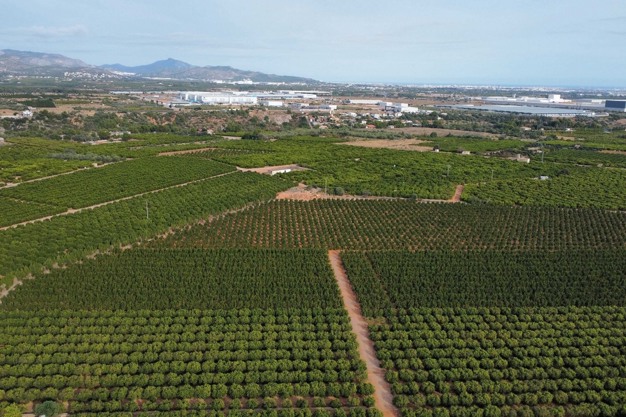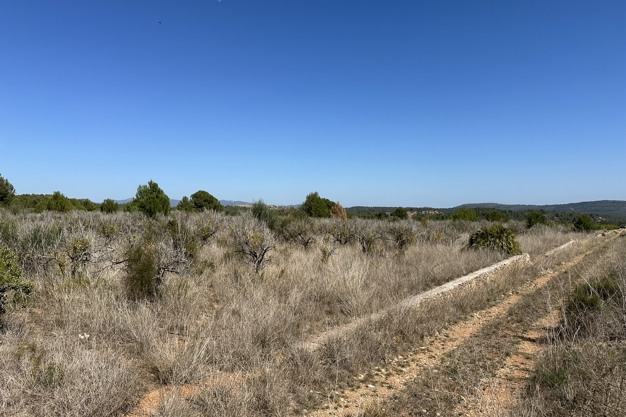A park with 751,632 solar panels on 605 hectares of the municipalities of Onda and L'Alcora (Castellón). According to Asociex, the Association of Fruit Exporters of Castellón, not only would the solar park project for Onda-Alcora radically change the landscape, it would also cause irreparable damage to one of the citrus areas with the greatest agricultural and economic value in the Valencian Community and, most likely, in the country. The vast majority of the network of photovoltaic modules will be built in the municipality of Onda. This area holds six large farms, including two of more than 100 hectares and another of 83 hectares, an important citrus research center, and the farms of about 140 medium-sized citrus growers.

Aerial image of the citrus area in Onda that the project would affect.
All these properties will be totally or partially damaged, devalued in any case, by the solar plant promoted by Harbour Maestrat 4, a subsidiary of EnerHi.
To start the park's building process, this developer has reached agreements with the minimum legal percentage of owners of areas in the other affected municipality, L'Alcora, necessary to affect the rest of the properties. The most relevant feature of this part of the project -which has the support of the landowners- is that it is mainly about abandoned or semi-abandoned forest or agricultural areas. In exchange for this ownership, the developer aspires to affect the aforementioned high-value area of Onda with its project, whose owners reject it.

An abandoned field in L'Alcora.
Asociex estimates that the farms of the five firms of its associated companies produce 15,000 to 20,000 tons of citrus each campaign, which, upon leaving the warehouse, would have an approximate value of 22 million euros. These large, modernized farms with localized fertigation mainly produce protected club mandarins, whose prices usually double or even triple those of other competing varieties. Some of these farms are entirely meshed to protect their crops against wind, hail, and pests, and all of them have young trees and state-of-the-art patterns, with record productivity and profitability.
The solar plant would also affect Investigación Citrícola de Castellón, S.A. (ICCSA), a company founded in 2009 to research, create, and develop new varieties, especially of mandarins. The goal is to provide breakthroughs that enable companies to become more competitive in the markets. The solar project would force the company to uproot the plants in the test fields they have worked in for the last 14 years: i.e. 5,000 trees where they controlled the evolution of up to 24,000 different varietal lines.
For more information:
Rafael Quilis
+34 661 20 86 96
